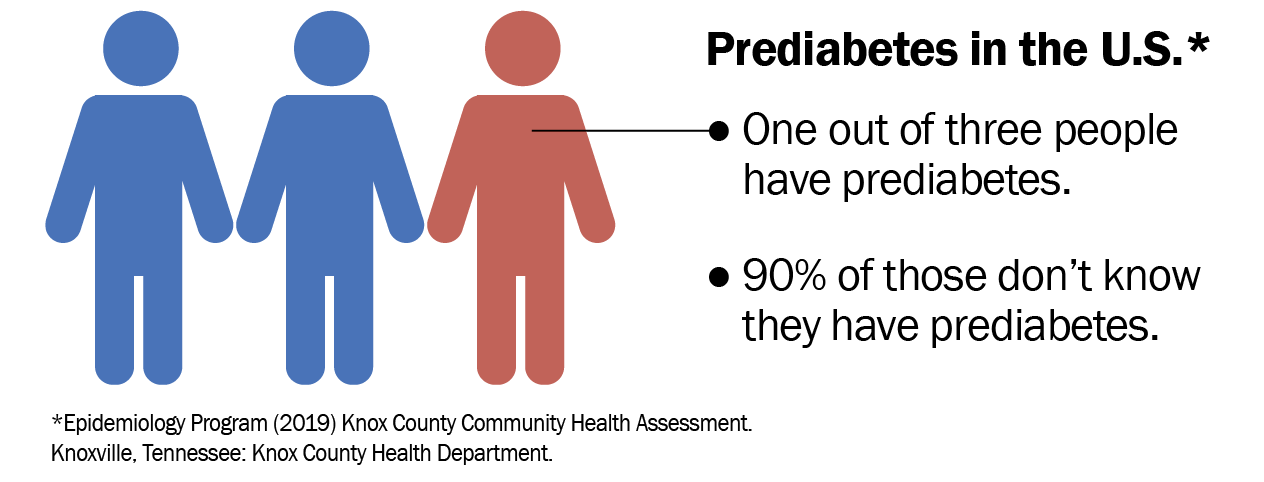Approximately 760,719 people in Tennessee, or 13.8% of the adult population, have diagnosed diabetes. Thanks to better treatments, people with diabetes live longer and enjoy a better quality of life than ever before. If you are living with diabetes, it’s important to make choices that keep you and your loved ones healthy.
Join us for a FREE three-part series to learn about diabetes, including the role of diet and exercise, medications, and management. This class is open to everyone, regardless of your diabetes status.
Upcoming Diabetes Management Classes
Click here to sign up. | 12 - 1 p.m.
Click here to sign up. | 6-7 p.m.
Click here to sign up. | 6-7 p.m.
Online Diabetes Management Classes are now available! If you are unable to attend our in person class or if you did join but just want a refresher on a specific topic covered, click here for our online edition.
Don’t let the “pre” fool you. Prediabetes is a serious health condition. People with prediabetes have higher blood sugar than normal, but not high enough yet for a diabetes diagnosis.
Prediabetes is a condition when a person has difficulty using the insulin produced by the body. This causes blood sugars to be slightly above normal. The CDC estimates more than 1 in 3 Americans have prediabetes, but 9 out of 10 are not diagnosed. If untreated, 15-30% of people with Prediabetes will develop type 2 diabetes within 5 years.

If you are worried you may have prediabetes or be at risk for diabetes, there are several resources for you to use. First, take the Diabetes Risk Assessment Test, here. If you are at risk for type 2 diabetes, visit this website find a Diabetes Prevention Program near you: https://www.cdc.gov/diabetes/prevention/find-a-program.html
Steps To Take To Reduce Prediabetes
- Eat healthy foods. A diet high in fruits, vegetables, nuts, whole grains and olive oil is associated with a lower risk of prediabetes. Choose foods low in fat and calories and high in fiber. Eat a variety of foods to help you achieve your goals without compromising taste or nutrition.
- Be more active. Physical activity helps you control your weight, uses up sugar for energy and helps the body use insulin more effectively. Aim for at least 150 minutes of moderate (walking briskly, playing sports, riding a bike) or 75 minutes of vigorous aerobic activity (running, swimming laps, riding bike more than 10 miles per hour) a week, or a combination of moderate and vigorous exercise.
- Lose excess weight. If you're overweight, losing just 5% to 7% of your body weight, about 14 pounds if you weigh 200 pounds, can significantly reduce the risk of type 2 diabetes. To keep your weight in a healthy range, focus on permanent changes to your eating and exercise habits.
- Stop smoking. Stopping smoking can improve the way insulin works, improving your blood sugar level.
- Take medications as needed. If you're at high risk of diabetes, your health care provider might recommend medications to control cholesterol and high blood pressure.
Access to healthy foods plays an important role in preventing and managing chronic diseases, like diabetes and heart health.
The Knox County Food Resource Guide provides information on community resources that connect people to healthy food. There is a comprehensive list of food pantries in the county as well as information on supplemental nutrition programming.



Click here to leave a comment or concern.